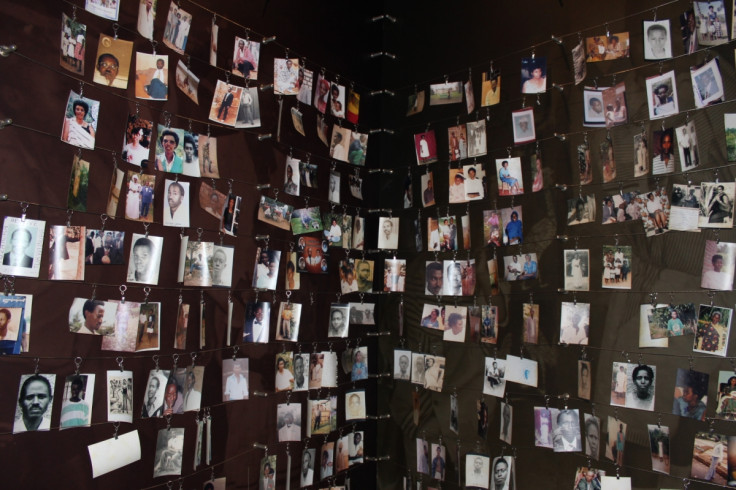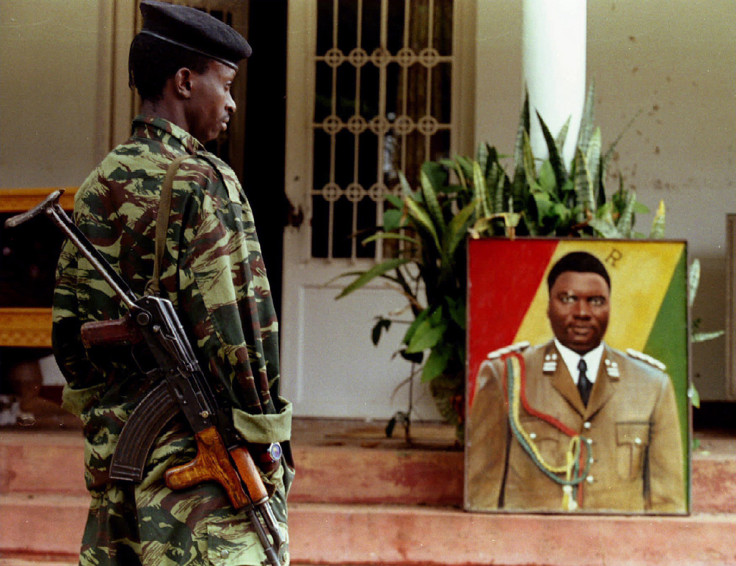Rwandan genocide: New probe attempt to 'destabilise Kagame and hide French role in massacres'
RNC could use Rwandan genocide probe to destabilise Kagame ahead of election, claims Great Lakes expert.
France's decision to re-open an inquiry on the assassination of a Rwandan Hutu president, whose death sparked the 1994 Rwandan genocide, comes at a suspicious time, an analyst on the Great Lakes region has told IBTimes UK.
President Juvénal Habyarimana died in a plane crash on 6 April 1994, an incident the Rwandan Tutsi were blamed for. The crash triggered mass-massacres of Tutsi and moderate Hutu by Hutu extremists in the country.
Earlier in October, French investigators said they wanted to hear evidence from Rwandan political dissident and former general Kayumba Nyamwasa, who claims Rwandan President Paul Kagame was involved in Habyarimana's assassination.
Kagame was the head of the rebel movement Rwandan Patriotic Front (RPF) – now Rwanda's army – which defeated the genocidal forces in 1994.
The leader, who denies any involvement in the murder, criticised France's decision. Kagame has always maintained Habyarimanawas killed by Hutu forces, who used his death as an excuse to start massacring Tutsi.
'Suspicious time'
"The timing of this new investigation is highly suspicious. Two major political issues lurk in the background," Phil Clark, reader in international politics at Soas University, London, said.
More on Rwanda's election
President Paul Kagame: 'I did not ask for a third term but Rwandans want me to stay'
Green Party urges Rwandans to vote against constitutional amendments
'We could only dream of making this progress since genocide'
He added the evidence Nyamwasa – who lives in exile in South Africa – allegedly holds against Kagame could be used to destabilise next year's presidential election.
"Nyamwasa leads the [US-based] opposition Rwandan National Congress (RNC), which is currently disintegrating because of in-fighting among its leaders," Clark said.
"Nyamwasa coming forward with evidence represents the RNC's parting shot against the Kagame-led government in Rwanda. The RNC also sees this as a chance to destabilise Kagame's government ahead of next year's Rwandan presidential elections."
The RNC has not responded to a request by IBTimes UK for comments on the allegations.

France role during genocide
Kagame became president of Rwanda in 2000 and relations between the African nation and France have been deteriorating since.
In 2006, Rwanda cut ties with France after a judge had called for Kagame to stand trial before a UN court over the 1994 plane crash.
In 2008, Rwanda released a report accusing French forces of taking part in the killings of Tutsi, and Hutu who hid Tutsi. French troops were also accused of raping Rwandan women.
"Rwanda refused France's appointment of a new ambassador to Kigali in 2012 and since then France has had no ambassador in Rwanda, which highlights the tensions between the two countries," Clark explained.
"After many years of neglect, the French courts have started prosecuting high-ranking Rwandan genocide suspects who live in France. Through these trials, more and more evidence is emerging of France's role in the Rwandan genocide, including France's arming and training of Habyarimana's forces and Hutu militias," he alleged.
"This new investigation into whether Kagame's rebel forces shot down Habyarimana's plane is an attempt to deflect attention from France's complicity in the genocide. We should therefore be highly sceptical about the political motivations behind the French inquiry."
France has always denied the accusations and maintained its troops were deployed to protect civilians in 1994.
In December 2015, French army officials denied allegations that troops active in Rwanda in 1994 had failed to prevent the killings of some Tutsi in the Bisesero hills, in spite of being allegedly informed that the civilians were at risk of being killed.
Earlier this year, General Jean-Claude Lafourcade, head of France's UN mandate in western Rwanda in 1994, denied French troops had given munitions to Hutu rebels.
"No munitions, not even a bullet, was given [to the Hutus ] by Operation Turquoise," he said during hearings on the Biserero killings. "Where the French soldiers were, there were no massacres nor abuses. It took some time for the reality of the genocide to sink in, seeing... the presence of mass graves, burned villages."

© Copyright IBTimes 2025. All rights reserved.




















